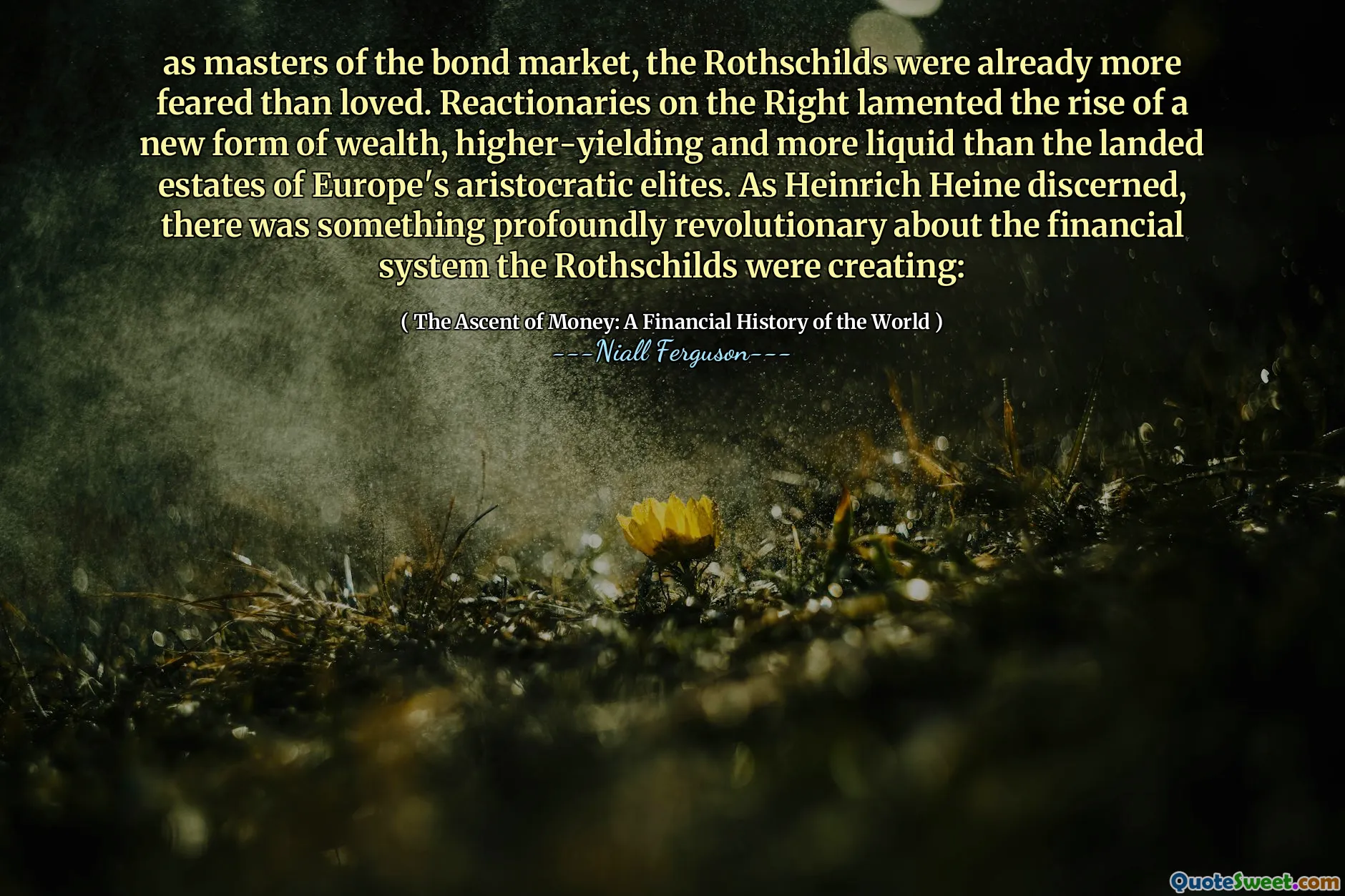
as masters of the bond market, the Rothschilds were already more feared than loved. Reactionaries on the Right lamented the rise of a new form of wealth, higher-yielding and more liquid than the landed estates of Europe's aristocratic elites. As Heinrich Heine discerned, there was something profoundly revolutionary about the financial system the Rothschilds were creating:
The Rothschild family emerged as formidable players in the bond market, garnering a reputation that was more associated with fear than admiration. Their financial innovations and ability to generate significant wealth shifted traditional power dynamics in Europe, especially among the aristocracy, who were losing ground to the new financial elite. This shift created tension among conservative factions who viewed the Rothschilds' economic prowess as a threat to established social structures.
Heinrich Heine observed the revolutionary nature of the financial systems that the Rothschilds developed, highlighting how their methods of wealth accumulation were reshaping society. The Rothschilds' influence signified a move away from traditional landownership, igniting discussions about the changing landscape of wealth and its implications for power and status in Europe. Their legacy underscores the profound transformation in financial practices and the societal implications that followed.











